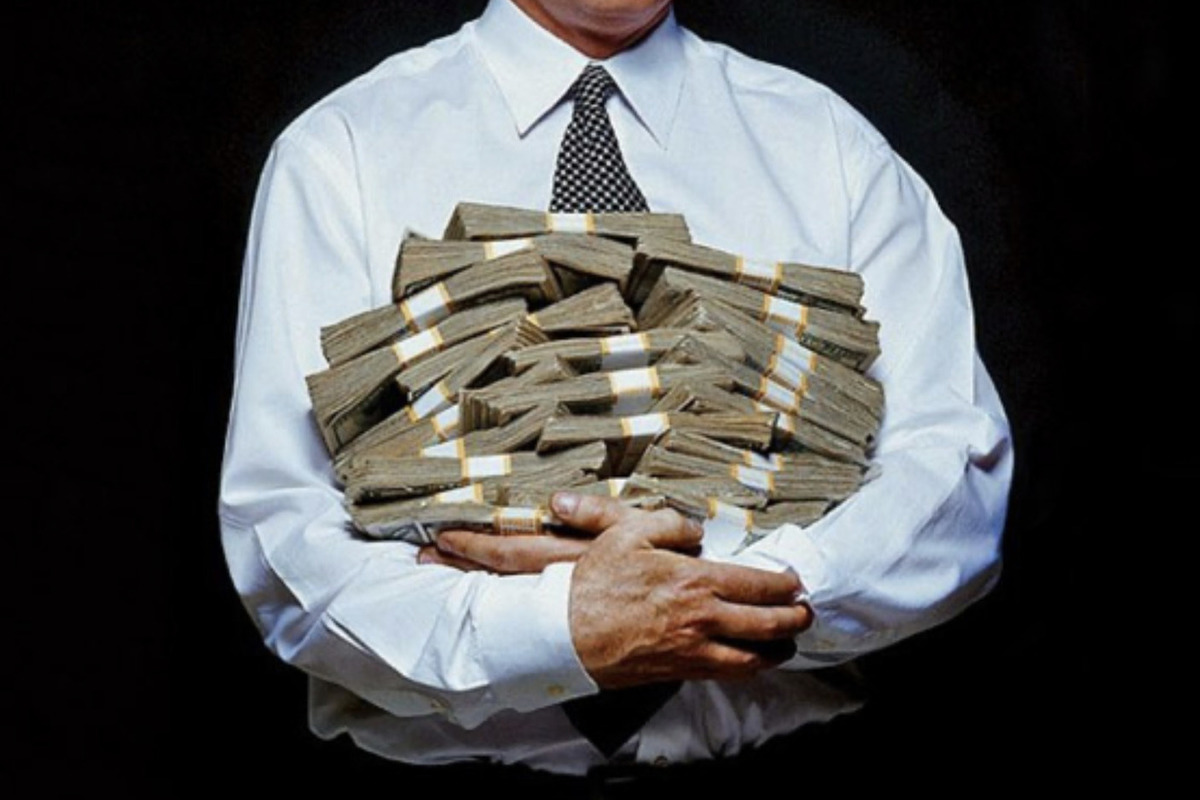“Bridging the gap”: a wealth tax has been introduced in Belarus
[ad_1]

A new law has been adopted in Belarus, which involves increasing the tax from 13 to 25% for people who earn more than 200,000 thousand rubles a year (about 5.5 million rubles). According to the authorities, the measure will affect about 8-9 thousand people, and taxes will help withdraw “income received on a large scale from legal entities and individuals.” “MK” was looking into whether the measure would help the Belarusian government replenish the treasury and what Belarusians think about it.
The initiative really will not affect ordinary Belarusians. The average salary in Minsk is 1,600 Belarusian rubles (43 thousand Russian). A teacher, for example, receives about 41 thousand Russian rubles, a doctor can receive up to 63 thousand, and a store salesperson on average earns about 30. So the measure will affect businessmen and entrepreneurs, respectively, whose income is equal to or exceeds 450 thousand rubles per month.
It is quite difficult to say whether this measure will help replenish the treasury. Russia also took a similar measure in 2021, and it worked. But there is a big difference: the rate for income over 5 million rubles per year was increased from 13 to 15%. An increase of two percent, although an unpleasant measure, will not force businessmen to look for countries with more loyal policies for business relocation.
In the case of Belarus, enterprises may consider that they are simply being robbed and begin to pay “gray wages” and hide the company’s profits in the Cayman Islands. There is another option – to transfer your business to Russia. So, if taxation in the two countries differs, then Minsk’s initiative is unlikely to work.
Nevertheless, political scientist Alexei Dzermant believes that despite such a large increase, this is unlikely to provoke an outflow of capital: “People have businesses in Belarus, they have taken root here. It is unlikely that anyone will begin to transfer enterprises en masse. In addition to increasing taxes for businesses, there are other bonuses and benefits that make them feel comfortable.”
He explained to MK that this measure is necessary because Belarus is a social state. “The country positions itself as a social state, where there is no big gap between the poor and the rich. The government is now imposing a tax on the super rich, and it is justified. It makes sense that people with higher incomes would pay more taxes.”
However, local residents believe that the measure is related to economic difficulties in the country. As Minsk resident Andrei told MK, one of the problems of Belarus is that the government strictly regulates food prices. Inflation in the country is indeed at a record low – only about 4%.
“However, manufacturers cannot work when prices are dictated to them – they either close and there is a shortage, or quality drops. It seems to me that Lukashenko was convinced to let prices go, but this will be followed by an explosion of inflation. Apparently, Belarusian economists and the president understand what needs to be prepared for and are trying to create some kind of “financial cushion” for the period of crisis,” he shared with MK.
Resident of Minsk, pensioner Marina spoke about salaries, pensions and prices for MK products:
“Despite supposedly low inflation, prices have increased to varying degrees for almost everything. According to my calculations, food and medicine have increased by 10-15%. My favorite poppy seed pie cost 2 rubles, now it’s 4. But this is the same store, the same composition.
Some manufacturers are acting more cunningly, apparently executing the president’s order on price ceilings. So, the biggest problem now is the rapidly decreasing size of packages.
The full-fledged packaging that we have become accustomed to over the past decades simply cannot be found anymore. Milk is sold in 800-900 milliliters instead of a liter. All cereals are 870, 930, 760 grams. I haven’t seen a 200 gram package of butter for a long time, only 150-180. Moreover, you won’t even notice right away – the manufacturers made the packaging very similar to the previous ones, and the volume is indicated in small letters on the back side, next to the composition.
We do not feel any increase in prices for local fruits and vegetables. But those that are imported from other countries have risen in price very much. Buying bananas or citrus fruits now has a serious impact on your wallet.
I heard about increasing teachers’ salaries to 1,600 rubles (45,761 rubles). The pension increase is very slight; it was increased by 83 kopecks (24 rubles) for length of service. And even then, only for those who are over 75 years old. They’ve been talking about this for a year, but they added this little thing. You can’t even buy a subway token with this money. A pension of 700 Belarusian rubles (20,000 Russian rubles) is considered good.
[ad_2]
Source link






